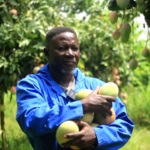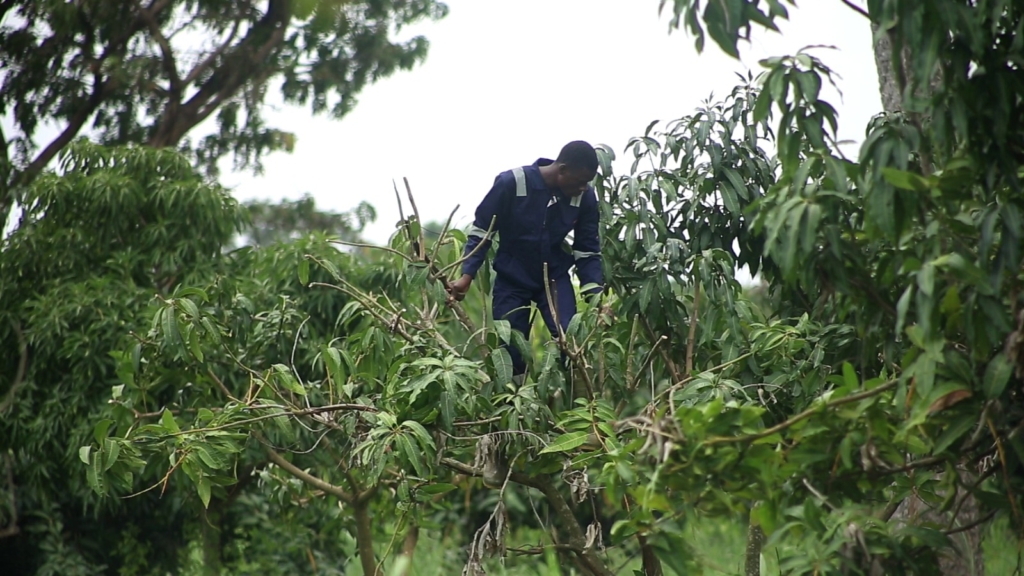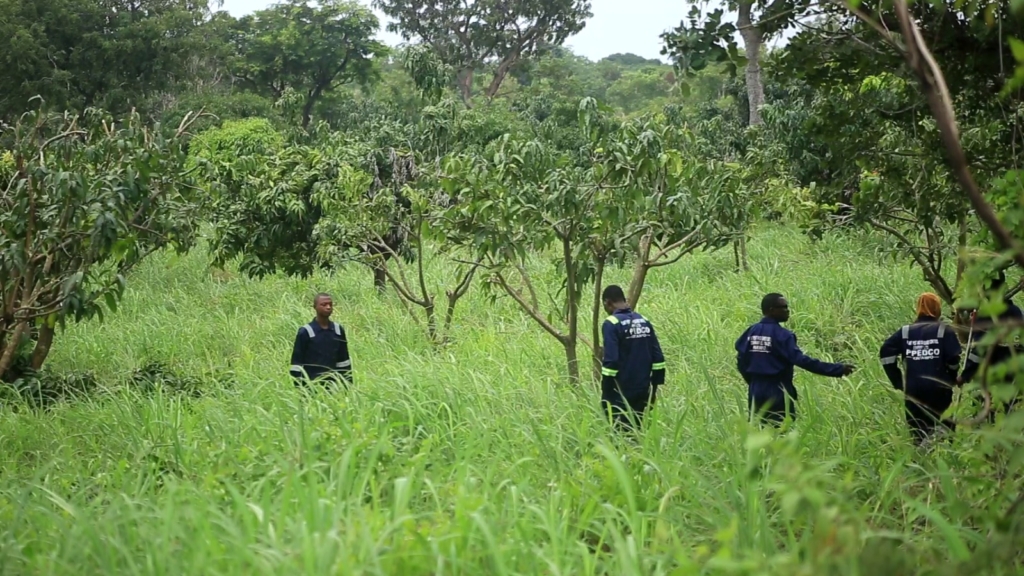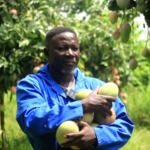
For years, mango farmers in parts of Ghana watched helplessly as a deadly plant disease, Bacterial Black Spot (BBS), destroyed their farms. The disease caused lesions, rotted the fruits, and crippled livelihoods. But today, in many farms across Kintampo North, the BBS are gone, thanks to the work of a local agricultural company, Plant Pests and Diseases Control Company Limited (PPEDCO).
“I lost almost everything to the disease,” one farmer, Eric Kwame Adjei, recalled, holding a flawless mango with a smile. “The trees would flower, and the fruit would then rot. I was giving up. Now I plan to expand my farm. I owe that to PPEDCO.”

Mr Adjei owns a 6-acre mango farm. This year, he harvested about 10 tonnes of mangoes, the equivalent of two KIA truckloads, instead of the expected 60 tonnes or ten truckloads. Between 2018 and 2022, Mr. Adjei should have harvested about 240 tonnes. Instead, he managed only 40 tonnes, losing 200 tonnes of mangoes to BBS.

“The disease has cost me more than money. It has drained my energy and hope,” he said. “If not for PEPCO’s intervention, I would have abandoned the farm.”
According to PPEDCO, the breakthrough came through a targeted plant health program designed to combat Mango Bacterial Black Spot. The system uses a mix of biological and organic treatments combined with timely spraying schedules. In pilot farms, the company recorded 100% control of the disease and, for the first time in years, 100% yields.
“Our model focuses on the tree’s immunity, not just killing the bacteria,” explained a PPEDCO Managing Director, Yaw Asenso Mensah. “This way, we protect the plant naturally while improving soil health.”

PPEDCO has also committed to reducing chemical dependency among farmers, promoting organic farming practices that are safer for people and the environment. “We believe the future of agriculture is green,” said the company’s managing director. “Organic isn’t just safer, it’s sustainable.”

Another biggest success stories comes from Baffour Daniel, owner of a 25-acre mango plantation planted in 2016. For years, BBS wiped out most of his yield. “Until last year, I harvested about 5 tonnes,” Baffour said. “After consulting with PEPCO, this year I harvested 40 tonnes.”
The difference, he explained, came from PEPCO’s targeted plant health program, which uses biological and organic treatments with timely spraying schedules. The company has also begun pruning and treating its entire farm, a process Baffour believes will protect future harvests. Inspired by the results, he plans to expand his farm from 25 to 50 acres.
In Baffour’s words: “This year’s harvest has changed my story. I believe the best is yet to come.”
“Our model focuses on the tree’s immunity, not just killing the bacteria,” said a PEPCO managing director. “This way, we protect the plant naturally while improving soil health.”
PEPCO is also allowing agricultural graduates and students to gain hands-on experience in disease diagnosis, organic farming, and agro-entrepreneurship.
Currently, four students from the Wenchi College of Agriculture and Applied Technology are interning with PEPCO on Baffour’s farm. Among them are Iddi Abdul Wakil and Awudu Murjanatu, who spend their days learning practical farming skills while helping to rehabilitate the plantation.
“This is what we didn’t get in class,” said Murjanatu. “Here, we learn everything from identifying plant diseases to preparing natural inputs.”
PPEDCO’s Managing Director believes the mission goes beyond treating trees. “We want a Ghana where no farmer is afraid of diseases, and where youth see agriculture as an opportunity, not a fallback,” he said.
“This is what we didn’t get in class,” said one trainee, Mumuni Abdul Gafaru. “Here, we learn everything from identifying plant diseases to preparing natural inputs.”
PPEDCO is also driving a new initiative encouraging farmers to adopt organic mango plantations. One such farmer is Nobert Akugurugu, a physician assistant who owns a 10-acre organic mango farm planted in April 2022.
Nobert has been working closely with PPEDCO on best practices for organic farming. “I’m excited about this investment,” he said. “Even though I’m yet to start harvesting between the 4th and 5th year, I believe it’s worth it.”
Mr Mensah from PEPCO confirmed that Nobert’s farm is being treated only with organic chemicals. He added that PPEDCO is currently working on 20 organic mango farms across the Kintampo area, aiming to make organic mango production a major part of the Bono East’s agricultural economy.
Farmers now speak of full harvests instead of losses, and young agriculturists are gaining the skills to keep Ghana’s food systems strong.
- President Commissions 36.5 Million Dollars Hospital In The Tain District
- You Will Not Go Free For Killing An Hard Working MP – Akufo-Addo To MP’s Killer
- I Will Lead You To Victory – Ato Forson Assures NDC Supporters
Visit Our Social Media for More




